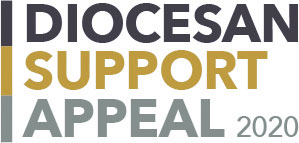CHARLOTTE — Feelings of anxiety, loneliness and depression are becoming more widespread during the COVID-19 pandemic. In response, Catholic Charities Diocese of Charlotte’s mental health counseling program has shifted from in-person to “tele-counseling” to make sure their clients continue getting this much-needed help.
“When in-person meetings were suspended on March 19, our immediate priority as a program was to find a way to continue mental health services for our existing clients,” said Bryan Sullivan, a licensed professional counselor supervisor with Catholic Charities. “At the time, there were 180 adults and couples who were under the care of our three full-time and one part-time licensed mental health counselors.”
Within two weeks the counselors, who provide individual and couples therapy in the Charlotte, Winston-Salem, Greensboro and Asheville areas, transitioned to an easy-to-use, HIPAA-compliant telehealth platform in which people use their computer, mobile phone or tablet to have a one-on-one confidential video session with a counselor. Clients receive the same level and types of services as with in-person sessions.
Only existing clients are currently part of the new tele-counseling effort, but Catholic Charities hopes to open the program to new applicants by the end of May, which is Mental Health Month.
“We are very excited to extend our mental health therapy during this time of COVID-19,” said Catholic Charities’ executive director, Dr. Gerard Carter. “We are even more excited to identify concrete ways in which we can employ telehealth to offer these services to those who live in rural areas across the diocese.”
In providing tele-counseling services, Catholic Charities had to consider several important factors and challenges, Sullivan noted.
Your DSA contributions at work
Some Catholic Charities Diocese of Charlotte programs are funded in part by contributions from the annual Diocesan Support Appeal. Learn more about the DSA and how you can contribute at www.charlottediocese.org/dsa.
“Many of those issues included choosing a telecommunication platform that served to maintain our standards for ethical care that meets HIPAA compliance guidelines and agency accreditation standards,” he said. “It was also important that we select a reliable, secure, user-friendly telecommunication product that we also had the technical support to maintain. We also had to problem-solve a way to get appropriate consent from our clients in order to render this service in line with best practice guidelines.”
Clients who agree to participate get an email invitation with instructions on how and when to join the session. Sessions last about an hour, just as they would have been in person.
“The vast majority of our clients have given us very positive feedback on this service thus far,” Sullivan said. “They have expressed that they are grateful that we have been able to continue to provide care.”
With each passing week that in-office operations remain suspended, more clients are opting for tele-counseling.
“This platform provides access to exceptional mental health care for everyone, and we remain deeply committed to ensuring access to care,” said Sharon Davis, program assurance director for Catholic Charities.
— Kimberly Bender, Online reporter
More online
At www.mhacentralcarolinas.org: Catholic Charities’ Mental Health Counseling has a relationship with Mental Health America of Central Carolinas. Learn more about mental health or get immediate assistance after business hours on their website.



